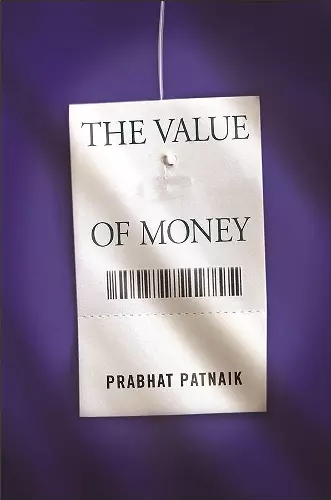The Value of Money
Format:Hardback
Publisher:Columbia University Press
Published:17th Apr '09
Currently unavailable, and unfortunately no date known when it will be back

Prabhat Patnaik's closely argued and strikingly original book exposes logical flaws at the heart of all versions of the 'monetarist' claim in which price flexibility stabilizes aggregate demand, employment, and growth in capitalist economies. Instead, he argues that only 'propertyist' theories with Keynesian and Marxian roots, in which money prices are anchored outside of supply-demand fluctuations of particular markets and in the relation of the capitalist system to precapitalist societies, can illuminate the political economy of globalization. Through this perspective, the ongoing pauperization of large populations has created a price-taking army of labor that has served as a 'shock absorber' stabilizing global capitalism. In Patnaik's view, this historical pattern has reached a crisis that now underlies multiple problems facing advanced capitalist societies, from energy to immigration. The Value of Money not only raises important questions about dominant ideas in monetary theory and macroeconomics, but also provides a coherent and analytically enlightening account of globalization's dilemmas and contradictions. A powerful antidote to complacent preconceptions about the future of the world economy. -- Duncan Foley, Leo Model Professor of Economics, New School for Social Research, and external faculty, Santa Fe Institute
Why is money more valuable than the paper on which it is printed? Monetarists link the value of money to its supply and demand, believing the latter depends on the total value of the commodities it circulates. According to Prabhat Patnaik, this logic is flawed. In his view, in any nonbarter economy, the value we assign to money is determined independently of its supply and demand. Through an original and provocative critique of monetarism, Patnaik advances a revolutionary understanding of macroeconomics that highlights the "propertyist" position of Karl Marx and John Maynard Keynes. Unlike the usual division between "classical" economists (e.g., David Ricardo and Marx) and the "marginalists" (e.g., Carl Menger, William Stanley Jevons, and Leon Walras), Patnaik places "monetarists," including Ricardo, on one side, while grouping propertyist writers like Marx, Keynes, and Rosa Luxemburg on the other. This second group subscribes to the idea that the value of money is given from outside the realm of supply and demand, therefore making money a form in which wealth is held. The fact that money is held as wealth in turn gives rise to the possibility of deficiency of aggregate demand under capitalism. It is no accident that this possibility was highlighted by Marx and Keynes while going largely unrecognized by Ricardo and contemporary monetarists. At the same time, Patnaik points to a weakness in the Marx-Keynes tradition--namely, its lack of any satisfactory explanation of why the value of money, determined from outside the realm of supply and demand, remains relatively stable over long stretches of time. The answer to this question lies in the fact that capitalism is not a self-contained system but is born from a precapitalist setting with which it interacts and where it creates massive labor reserves that, in turn, impart stability to the value of money. Patnaik's theory of money, then, is also a theory of imperialism, and he concludes with a discussion of the contemporary international monetary system, which he terms the "oil-dollar" standard.
ISBN: 9780231146760
Dimensions: unknown
Weight: unknown
280 pages